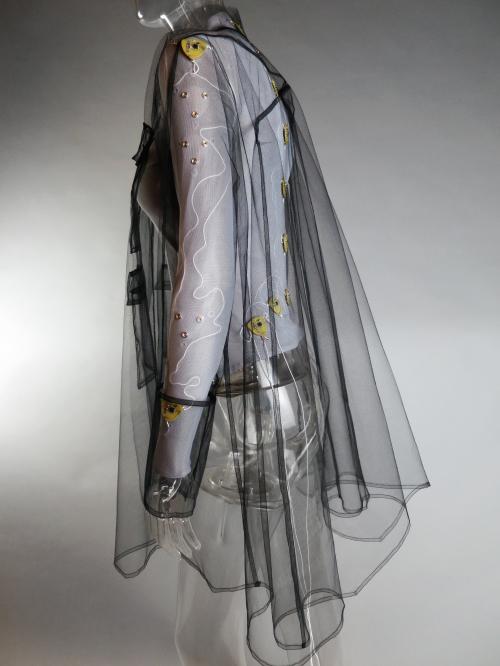 siggraph
siggraph
siggraph
siggraph
Embodisuit
 Full Conference Pass
Full Conference Pass Full Conference 1-Day Pass
Full Conference 1-Day Pass Basic Conference Pass
Basic Conference Pass Experience Pass
Experience Pass Exhibitor Pass
Exhibitor Pass
Date/Time:
28 - 29 November 2017, 10:00am - 06:00pm
30 November 2017, 10:00am - 04:00pm
Venue: BHIRAJ Hall 3 - Experience Hall (Art Gallery)
Location: Bangkok Int'l Trade & Exhibition Centre (BITEC)
Artists Statement: Technology is not neutral. We're inside of what we make, and it's inside of us. We're living in a world of connections — and it matters which ones get made and unmade.
—Donna J. Haraway, "A Cyborg Manifesto", 1991
The Embodisuit allows its wearer to map personally chosen signals from an IoT platform to physical sensations on their body. The wearer customizes the garment with haptic modules attached by snaps to create sensations of heat, cold, vibration, and more. These sensations can be constant or infrequent, subtle or jarring, singular or grouped, and they are entirely configurable by the wearer for both practical and poetic purposes.
In addition to showcasing novel e-textile innovations, the Embodisuit demonstrates the potential of the application of embodied cognition to wearables. Knowledge can experienced ambiently without necessitating the interpretation of symbols by the conscious mind. Experiencing information through the body is more natural and efficient but also affords opportunities for greater imagination and meaning-making. The suit empowers the wearer to reconfigure the boundaries of their self tying them to the people, places, and things that are important to them. It both critiques and offers an alternative to current trends in wearable technology. Challenging the assumptions of the Quantified Self, the Embodisuit is a garment of resistance. Instead of harvesting data from the wearer to be sent elsewhere, it allows the wearer to take data in through the skin.
We envision the Embodisuit as a way to rebalance our data ecosystems, taking back control of the configuration of our boundaries and the trajectory of our cyborg evolution. Furthermore, we hypothesize that by changing the way people live with data, it will change the type of data that people create.
Artist(s): Sophia Brueckner, University of Michigan
Rachel Freire, Independent Artist


